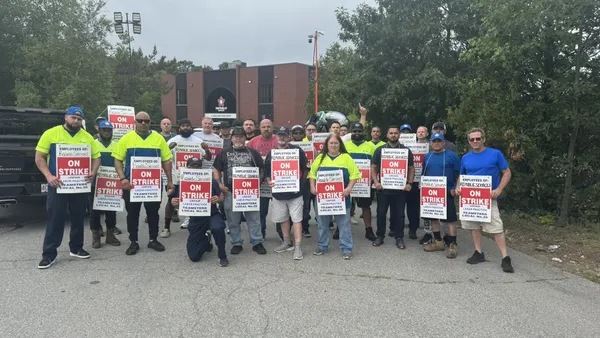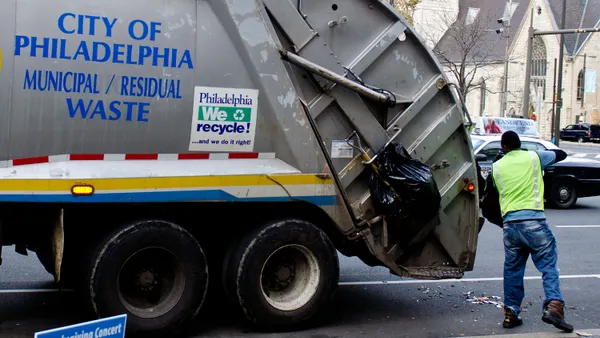UPDATE, July 17: Adam Guiffrida, the plaintiff suing Scranton, PA over its $300 annual collection fee, filed a motion in Lackawanna County Court on June 30 to declare the suit as a class action, as reported by The Times-Tribune. If certified as class-action, anyone who paid the trash fee in recent years would be able to "opt-in" to the suit as a co-plaintiff and, if successful, be "entitled to a pro rata refund of the overpayment," according to the lawsuit.
UPDATE, March 31: A Lackawanna County judge recently signed a procedural agreement that will allow the lawsuit over Scranton, PA's collection fee to move forward, as reported by The Times-Tribune. The plaintiff's side agreed to drop charges of unjust enrichment in return for Scranton's lawyers withdrawing their objection to the second charge that the fee violates a municipal ordinance.
The city has been given 20 days to study what the actual cost of waste collection is and whether it justifies the full $300 fee. At that time, the judge will decide whether to allow the lawsuit to become class action and whether that will include an opt-in clause. Scranton's lawyers have pushed back on the possibility of a class action suit, saying it would be too time-consuming and complex to potentially refund all of the city's more than 77,000 residents.
Dive Brief:
- A landlord in Scranton, PA is suing the city for allegedly violating the terms of an ordinance which says that annual waste fees can't be used for anything beyond the cost of collection, as reported by The Times-Tribune.
- In 2014, the city raised annual fees to $300 which resulted in an additional $2.2 million. This year the Department of Public Works Bureau of Refuse had spent about $2.8 million of its $4.2 million operating budget as of September, but collected $6.2 million in fees.
- The city solicitor has said he is reviewing the lawsuit and has given no official response. If this becomes a class-action lawsuit — and is successful — an estimated 50,000 residents and business owners could see rebates within a year of the decision.
Dive Insight:
The 2014 fee hike has continued to resonate and local officials have said they're considering some form of pay-as-you-throw or per-bag system instead. As with most municipalities Scranton's budget is tight and finding a way to balance the lost revenue from these collection fees, especially if this becomes a class-action suit, will be challenging.
Whether or not Scranton has been overcharging, it should also be noted that a number of residents haven't been paying the fee at all. The city has tried hiring a collection service, placing liens and even publishing the names of people with delinquent accounts in the local paper. This all comes as the city works to update its recycling program for the first time in decades in an effort to boost diversion rates.
The mechanics of these types of fees have been problematic in many other cities as well, sometimes resulting in millions of dollars going uncollected. On one hand the visibility of these fees — especially in a pay-as-you-throw system — may make people more aware of their waste. Building these costs into other types of taxes, as is done in New York for example, eliminates the fee collection issue but may make it harder to encourage better recycling behavior.










